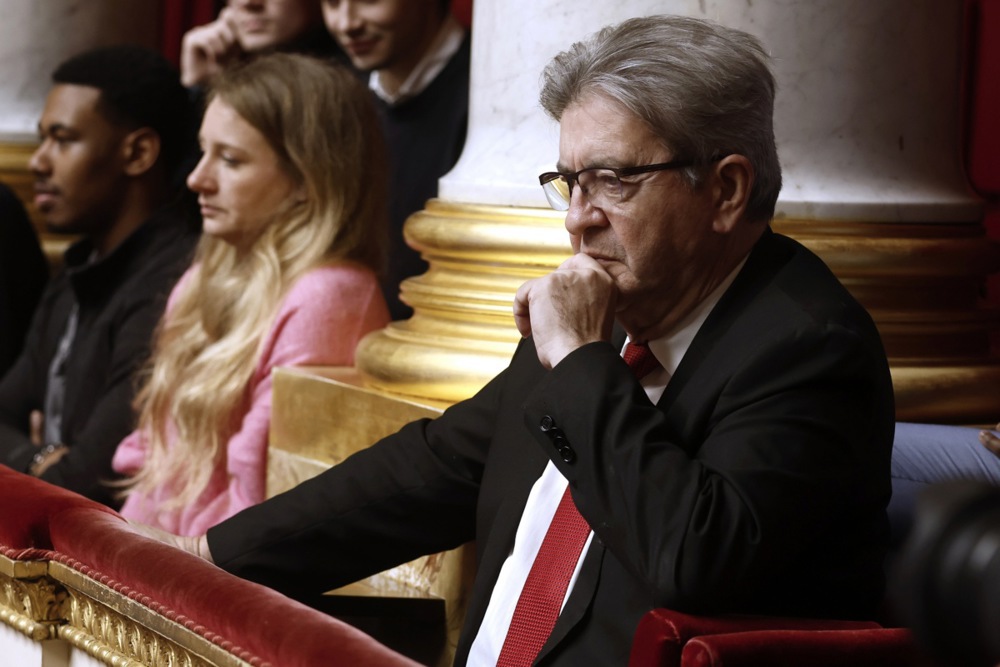French Prime Minister Sébastien Lecornu has resigned less than 24 hours after unveiling his new government.
In a political twist, President Emmanuel Macron today accepted Lecornu’s resignation – appointed PM on September 9 – plunging the country into yet another turmoil.
It makes him the shortest-serving French prime minister in the history of the Fifth Republic, with his government collapsing before even taking office.
Explaining his decision, Lecornu admitted: “The conditions for being prime minister were not met.”
He criticised what he called a political culture of double-dealing, noting that while “the consultations allowed us to make progress on several budgetary issues” the goodwill of the political parties “remained behind closed doors”.
“Red lines have sometimes turned orange, even green, in private but not in public,” he said.
In his resignation speech today, Lecornu lamented: “The parties pretended not to see the real break that came with the abandonment of Article 49.3, which allows the government to pass a bill without a parliamentary vote.
“Each side wants the other to adopt its entire programme, and forming a common foundation has not been smooth, largely because of the upcoming presidential election,” he added.
He also denounced those who put their party before their country, calling for humility and unity in the national interest.
“Under no circumstances should we relive the dark days of the Fourth Republic,” Lecornu concluded.
Nevertheless, the move marks France’s fifth change of government since 2022 and the third since December 7 last year.
Lecornu faced backlash from all sides after revealing his government lineup yesterday evening.
Within hours, tensions flared. Bruno Retailleau, President of Les Républicains (LR), who was reappointed as interior minister, criticised the new line-up, while his party threatened to withdraw support.
The National Rally (RN) mocked the government as a “raft of the Medusa ready to sink” and the Left announced plans to file a censure motion.
Unable to build a majority, Lecornu’s fragile coalition collapsed before it began.
Today, RN’s de facto leader, Marine Le Pen called for the dissolution of the French National Assembly.
“The only wise decision is to return to the polls and let the French people give direction to the country. Emmanuel Macron, by resisting irrationally, is dragging the nation into crisis,” she said.
For Tibère Devis, a Brussels lawyer, new elections alone will not fix France’s fractured political landscape.
“The alternative would be to change the voting system like in Belgium, to help France out of this deadlock,” he suggested.
France could adopt a proportional representation voting system, which would force political parties to form coalitions in parliament, thus ending the political tradition of having an absolute or a relative majority in the National Assembly under the Fifth Republic.
Devis noted the unprecedented nature of the crisis: “It’s the first time a government has been appointed and has resigned before even taking office. That’s unheard of.”
Still, he said he believed France can recover: “France’s history is a testament to its resilience: from revolutions to invasions, from economic downturns to political upheavals, it has always found a way to recover. To imagine France reduced to the status of a mere regional power — something not seen since the early days of the Frankish Kingdom, would be unprecedented,” he argued.
The crisis has fuelled growing calls from the Left for Macron’s resignation or impeachment.
Mathilde Panot, President of La France Insoumise (LFI) in the National Assembly, said: “Three prime ministers defeated in less than a year. The countdown has begun. Macron must go.”
Jean-Luc Mélenchon, LFI’s de facto leader, went further, demanding the immediate examination of the motion submitted by 104 deputies for the impeachment of Macron.
Under the Fifth Republic, only the late General Charles de Gaulle has resigned as president, in 1969.
While some fear a crisis of regime, Devis maintains there was no need to change the French Constitution, as others accused Macron of abusing presidential powers.
LFI MP Sarah Legrain said: “We are entering an extreme crisis, where Emmanuel Macron uses the Fifth Republic to abuse presidential authority.
“This situation was caused by Macron’s refusal to respect the will of the voters. He is the point of deadlock; either he resigns, or he will be impeached.”
Devis expressed doubt about the feasibility of impeachment: “As for impeaching the President … I’m not sure that’s possible. I don’t see why his obstinacy could be legally considered a breach of his duties incompatible with the exercise of his mandate,” he said.





